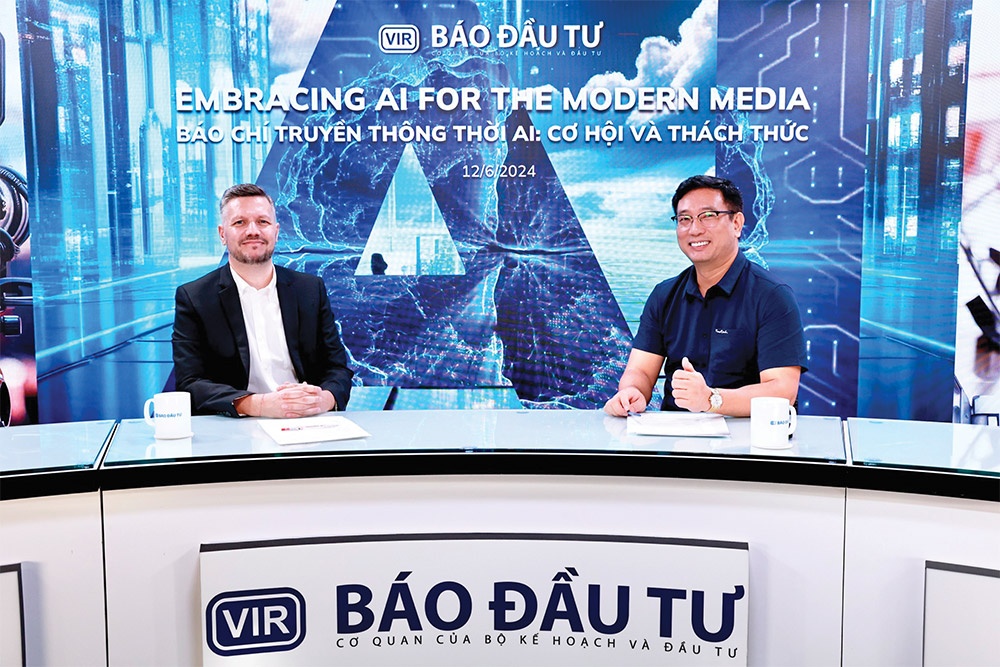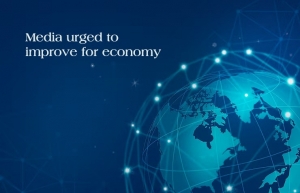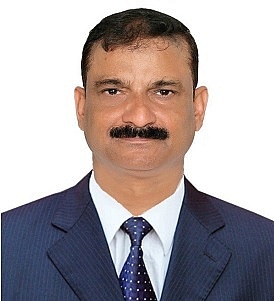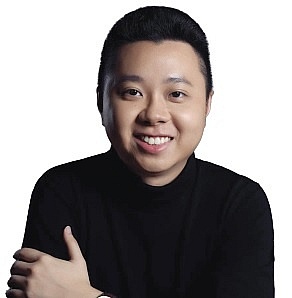New AI offerings pose more questions
Apple briefly surpassed Microsoft last week as the most valuable company in the world, after it announced its full entry into AI during a developer’s keynote event on June 10.
 |
| VIR last week held a talk show on embracing AI in the media |
After poring over Apple’s expansive plans for AI across its devices, shares surged more than 7 per cent to a record high on June 11. That enthusiasm continued into the following day, with shares rising another 2.8 per cent, as reported by CNBC.
Apple had revealed it would incorporate generative AI (GenAI) technology across its apps and newest devices, with features ranging from writing-assistance tech, which could be widely used in the media, to GenAI emojis.
Analysts from Evercore, Morgan Stanley, and Bank of America said in notes to investors last week that Apple’s AI features will drive users to buy new iPhones.
“Restricting this to iPhones sold within the last year adds to our conviction that AI can help kick off an iPhone super cycle,” Evercore analysts wrote.
Microsoft had surpassed Apple’s market cap earlier this year and, earlier this month, Nvidia overtook Apple to briefly become the second-most valuable public US company.
Microsoft is also likely to be a beneficiary of Apple’s AI ambitions. The iPhone maker announced that it would include OpenAI’s large-language models as a feature for its users. Microsoft is one of OpenAI’s largest investors.
At the Apple keynote last week, the tech giant unveiled Apple Intelligence as the name for a new suite of AI features for the iPhone, Mac, and more. Starting in the autumn, Apple is rolling out what it believes is a more conversational Siri and GPT-4o access that lets Siri utilise OpenAI’s chatbot.
In systems that could be easily picked up in areas as diverse as publishing, education, and retail, Apple said its AI features will carry out actions between apps, as well as manage notifications, automatically write for users, and summarise text in mail and other apps, as reported by The Verge.
As with other built-in AI writing tools, users can change the tone of writing with a prompt. The company also says its AI features can carry out directions, such as referencing one app to carry out an action in another.
“All those questions about Apple lagging from an AI technology standpoint have been answered,” Michael James, managing director of equity trading at Wedbush Securities in Los Angeles, told Reuters. “Some of the specifics about AI capabilities that will be integrated into the upcoming iPhones made it very apparent that there will clearly be demand for a significant upgrade cycle.”
Apple’s integration of its hardware and its software will be a key for users looking for quick information, according to financial analysis site MarketWatch.
“With AI, the fewer apps needed and the more a phone can use data contextually to assist the user, the better the phone will be,” International Data Corporation analyst Francisco Jeronimo told MarketWatch. “Apple’s full control of its ecosystem and seamless integration gives it a significant advantage over competitors.”
Integrated approach
In just a few short months, tech companies have made it clear that AI will be a defining feature of online life. Meta was first to surprise users in April with an AI chatbot update found in the search bar of Instagram and Facebook.
OpenAI also released GPT-4o, billed as a more powerful version of its chatbot. Around the same time, Google launched AI Overviews in its search engine, which was quickly panned for bizarre content that offered suggestions such as “putting glue on pizza” or “eating small rocks”, before being scaled back.
OpenAI also entered into new content partnerships with numerous media organisations and platforms such as The Atlantic and Reddit.
Elsewhere, Nvidia, which makes microchips used to power AI applications, reported record earnings at the end of May and subsequently saw its market capitalisation increase to more than $3 trillion.
A tech giant with a major foothold in Vietnam, Samsung, is also accelerating manufacturing plans to harness the AI boom.
Samsung Electronics said its contract manufacturing business plans to offer a one-stop shop for clients to get their AI chips made faster, integrating its global memory chip, testing, and packaging services, reported Reuters on June 12.
With clients working with a single channel of communication that directs Samsung’s related teams at once, the time it takes to produce AI chips has been cut by around one-fifth, the company said.
Samsung is one of the few tech companies that sells memory chips, offers testing/foundry services, and designs chips under the same roof. That combination has often worked against it in the past, as some clients were nervous that doing business with its foundry might benefit Samsung as a competitor in another field.
However, with skyrocketing demand for AI chips and the need for all the chip parts to be highly integrated to train or infer huge amounts of data fast by using less power, Samsung believes its turnkey approach will be a strength going forward.
“We are truly living in the age of AI, and the emergence of GenAI is completely changing the technology landscape,” said Siyoung Choi, president and general manager of Samsung’s Foundry Business at an event in California.
Samsung expects global chip industry revenues to grow to almost $780 billion by 2028, boosted by AI chips, Choi added.
Before that event, EVP of Foundry Sales and Marketing Marco Chisari said the company believes OpenAI’s loose projections on soaring demand for AI chips are “realistic”.
It was previously reported that Open AI CEO Sam Altman told executives at chipmaker Taiwan Semiconductor Manufacturing Company (TMSC) he wanted to build roughly three dozen new chip factories.
Samsung has also touted its cutting-edge chip architecture known as gate all-around (GAA), a type of transistor architecture that helps improve chip performance and reduces power consumption.
The United States is pondering tightened restrictions on China’s access to GAA, Bloomberg reported last week.
Along with Samsung, TMSC reportedly plans to include GAA in its upcoming 2-nanometre chips.
A different perspective
While much of the focus is on how the biggest tech companies are to take advantage of AI’s popularity, other voices are hoping to add more of an ethical slant.
At the latest G7 meeting in Italy on June 13-15, leaders of the world’s top industrialised nations were joined by a special guest to discuss the risks posed by AI: Pope Francis.
It was the first G7 summit to feature a pope as an invited participant, but it was not the first time that Pope Francis had weighed in on the AI issue and how he believes it should be developed for the good of humanity.
Brian Green, director of technology ethics at the Markkula Center for Applied Ethics at Santa Clara University, who was involved in an AI report that the Vatican released in 2023, told NPR that the pope was likely to mention ways that AI could be used to help poor people and protect the environment.
“The pope will bring a different perspective on the technology than a political or tech leader would,” Green said. “The only thing he really has is his moral authority, which means that he can’t really come with a big political agenda or a huge economic agenda, but he can come with a moral agenda.”
“There is a chance here for ethics and politics to work together to create a better world, specifically with this very powerful technology which is going to be transforming the future,” Green added.
For industries like the media or tech corporations, the pace of implementation is dizzying for some, including to some of those who understand the technology best, or could make best use of it.
Last week, employees and former employees of OpenAI and Google published a letter declaring that “strong financial incentives” have led the industry to dodge meaningful oversight.
“Technology companies, in other words, are racing to capture money and market share before their competitors do, and making unforced errors as a result,” wrote Charlie Warzel, a staff writer at The Atlantic.
But though tech corporations may have built a hype train, others seem to be happy to ride it, Warzel added.
“Leaders in all industries, terrified of missing out on the next big thing, are inking deals, perhaps not knowing what precisely it is they’re getting into, or if they are unwittingly helping the companies who will ultimately destroy them,” he said.
The Washington Post’s chief technology officer, Vineet Khosla, has reportedly told staff that the company intends to “have AI everywhere” inside the newsroom, even if its value to journalism remains unproven.
“Nobody knows what’s coming next. GenAI companies have built tools that, although popular and nominally useful in boosting productivity, are but a dim shadow of the ultimate goal of constructing human-level intelligence,” Warzel continued.
“And yet, they are exceedingly well funded, aggressive, and capable of leveraging a breathless hype cycle to amass power and charge head-on into any industry they please with the express purpose of making themselves central players.”
| Manoj Mishra, general manager TBC-Ball Beverage Can Vietnam Ltd.
Media agencies play a diversified and crucial role. They serve as watchdogs, educators, and advocates, ensuring that the public remains informed about important issues. VIR, with its focus on economics, business, and investment, has become an indispensable source of information for professionals and the public alike. The media’s impact on production and business activities is significant. By providing timely and relevant news, media organisations help businesses stay informed about market trends, regulatory changes, and economic developments. This information is crucial for strategic decision-making and planning. Companies rely on the insights provided by media to adapt to changing circumstances, seize opportunities, and mitigate risks. Moreover, the media fosters transparency and accountability, encouraging businesses to uphold ethical practices and corporate governance standards. This environment of scrutiny and openness contributes to a healthier business climate, driving economic growth and stability. We recognise and appreciate the dedication and hard work of journalists and media professionals, especially those at VIR. Their efforts not only inform and educate but also empower businesses and communities to thrive. Tran Dinh, Head, Fintech Committee Vietnam Blockchain Association
Blockchain technology, though not new, is underutilised in journalism but holds significant potential. For instance, non-fungible tokens (NFTs) allow creators to distribute content such as videos and photos on the blockchain globally. Blockchain can enhance journalism through three main applications. First, it enables peer-to-peer content distribution using NFTs, facilitating global sharing. Second, blockchain supports micropayments, allowing users worldwide to pay for content in various currencies, including cryptocurrencies like Bitcoin. This feature can enable seamless global transactions for newspapers. Third, blockchain provides content authentication and ownership verification, creating immutable records and digital watermarks to combat fake news and verify the authenticity of media content. AI also presents transformative possibilities, as emphasised by recent advancements. AI can replace many tasks traditionally performed by humans, such as basic education and medical consultations, improving efficiency and empathy in these fields. AI’s potential in Vietnam is vast, impacting sectors like journalism, fintech, and banking. It significantly boosts productivity; for instance, in the Vietnam Blockchain Association (VBA), AI has enabled researchers to increase their output from one or two press releases per day to fifteen. Moreover, the evolution of the web from Web 1.0 (information provision) to Web 3.0 (user-owned information) opens new opportunities for personalised journalism. Customisation and personalisation of news are crucial in the current media landscape overwhelmed by excessive information. The VBA, established in May 2022, aims to promote blockchain and AI technology in Vietnam, focusing on education, healthy start-up environments, and user protection. The association’s initiatives include the Blockchain and AI Academy Innovation, which educates various audiences on applying these technologies in real-world scenarios. |
 | Media urged to improve for economy The media has been playing an active role in shaping a healthier business and investment climate, and supporting the government in formulating sound policies. |
What the stars mean:
★ Poor ★ ★ Promising ★★★ Good ★★★★ Very good ★★★★★ Exceptional
Related Contents
Latest News
More News
- Citi economists project robust Vietnam economic growth in 2026 (February 14, 2026 | 18:00)
- Sustaining high growth must be balanced in stable manner (February 14, 2026 | 09:00)
- From 5G to 6G: how AI is shaping Vietnam’s path to digital leadership (February 13, 2026 | 10:59)
- Cooperation must align with Vietnam’s long-term ambitions (February 13, 2026 | 09:00)
- Need-to-know aspects ahead of AI law (February 13, 2026 | 08:00)
- Legalities to early operations for Vietnam’s IFC (February 11, 2026 | 12:17)
- Foreign-language trademarks gain traction in Vietnam (February 06, 2026 | 09:26)
- Offshore structuring and the Singapore holding route (February 02, 2026 | 10:39)
- Vietnam enters new development era: Russian scholar (January 25, 2026 | 10:08)
- 14th National Party Congress marks new era, expands Vietnam’s global role: Australian scholar (January 25, 2026 | 09:54)



 Tag:
Tag:














 Mobile Version
Mobile Version